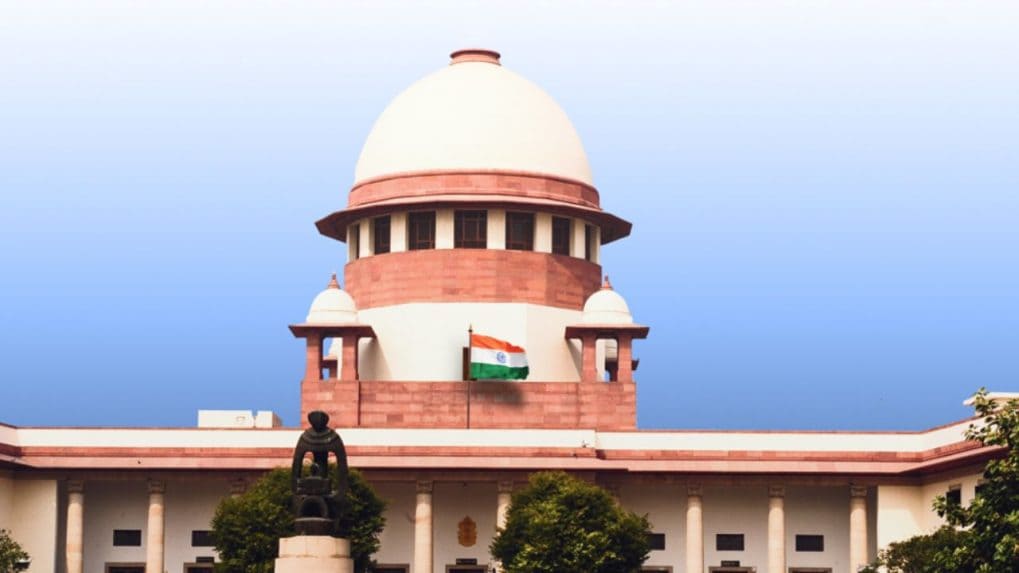Advertising
From Pink Slips to Silent Sidelining: Inside adland’s layoff and anxiety crisis

The Supreme Court on Monday directed the Union government to place before it a draft of proposed guidelines for social media conduct and content on social media, making it clear that the exercise must be carried out in consultation with the News Broadcasting Standards Authority (NBSA). The Centre has been given time till November to file the draft.
Emphasising the need for comprehensive and forward-looking rules, a bench of Justices Surya Kant and Joymalya Bagchi said: “Such guidelines shall be drafted with consultation by NBSA. The suggestions and viewpoints of all stakeholders shall be taken. The guidelines shall not be a knee-jerk reaction to any incident, but shall be wide enough to cater to future challenges.”
Advocate Nisha Bhambhani appeared on behalf of the NBSA during the proceedings.
Key Directives from the Court
Mandatory NBSA consultation: The NBSA must play a central role in the preparation of the guidelines, ensuring diverse viewpoints are included.
Future-ready framework: The guidelines should not be reactive but should provide safeguards against emerging challenges in the digital media landscape.
Timeline: The draft will be examined during the next hearing in November.
The Supreme Court on Monday directed five stand-up comedians, including YouTuber Samay Raina, to issue public apologies on their social media platforms for making derogatory remarks against persons with disabilities (PwDs).
The petition was originally filed by SMA Cure Foundation after derogatory content surfaced online while the petitions included one filed by YouTuber and podcaster Ranveer Allahbadia (popularly known as BeerBiceps) regarding comments made on Samay Raina’s show India’s Got Latent. Another petition by Cure SMA India Foundation accused Raina of making insensitive remarks about the cost of treatment for Spinal Muscular Atrophy, including alleged ridicule of a person with disability.
The Foundation had also sought regulations to curb online content that violates the right to life and dignity of persons with disabilities.
The bench, comprising Justices Surya Kant and Joymalya Bagchi, was hearing a petition filed by SMA Cure Foundation, represented by Senior Advocate Aparajita Singh, against comedians Samay Raina, Vipun Goyal, Balraj Paramjeet Singh Ghai, Sonali Thakkar, and Nishant Tanwar. The foundation sought not only apologies but also systemic guardrails to prevent recurrence of such instances.
Justice Bagchi noted that while humour was an integral part of life, influencers had a responsibility to respect India’s cultural and community sensitivities. “When you are commercialising speech, you cannot use a community and hurt their sentiments,” he remarked.
During the proceedings, the court permitted the Ministry of Information and Broadcasting to participate in the case. The bench recorded in its order that the government’s proposed guidelines must be framed in active consultation with NBDA, a body that has long represented television and digital news broadcasters, while also inviting inputs from other stakeholders.
“The proposed guidelines should not be a reaction to any particular incident but broad enough to cater to future needs,” the bench observed. The involvement of NBDA is seen as critical because of its experience in setting ethical standards for digital and television content, especially in balancing freedom of expression with the rights and sensitivities of vulnerable communities.
The matter is not confined to individual comedians. The Supreme Court emphasized that the digital ecosystem—including YouTube, podcasts, and online comedy platforms—needs a regulatory framework that respects Article 21 (right to dignity) alongside Article 19 (freedom of expression). By drawing in NBDA, the court is signaling its intention to extend the body’s established self-regulatory model from television to the more diffuse and often unregulated digital media space.
The bench is expected to take up the question of penalties in the coming hearings. Meanwhile, the Attorney General and the MIB, in consultation with NBSA and other stakeholders, will place draft guidelines before the Court. These are likely to serve as a precedent-setting framework for regulating responsible digital content creation in India.
With the apex court now formally involving the NBSA in shaping the regulatory framework, the matter is set to open a new chapter in balancing free expression with accountability on digital platforms.
From purpose-driven work and narrative-rich brand films to AI-enabled ideas and creator-led collaborations, the awards reflect the full spectrum of modern creativity.
Read MoreLooking ahead to the close of 2025 and into 2026, Sorrell sees technology platforms as the clear winners. He described them as “nation states in their own right”, with market capitalisations that exceed the GDPs of many countries.